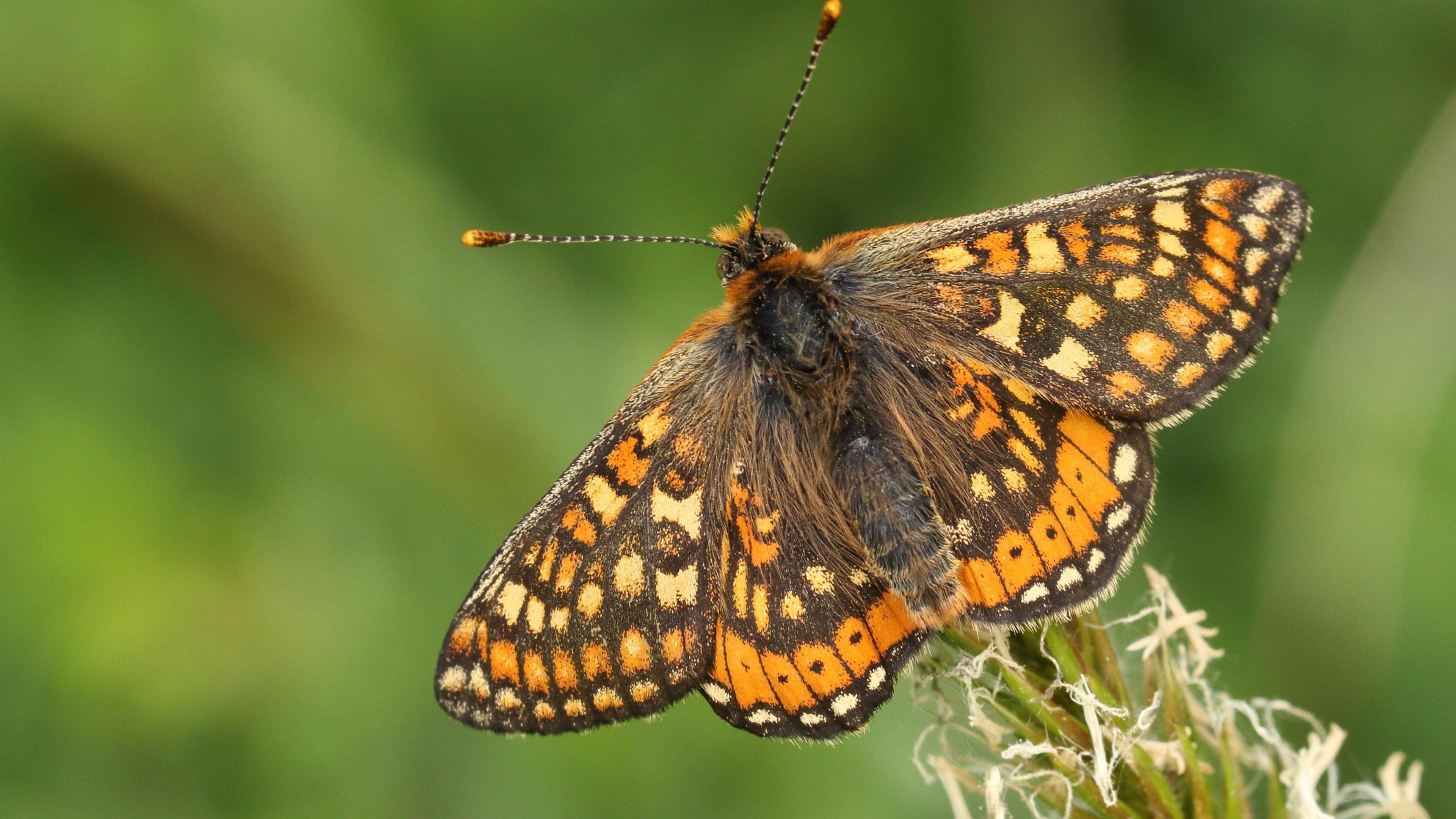Record numbers of rare butterfly seen at reserve
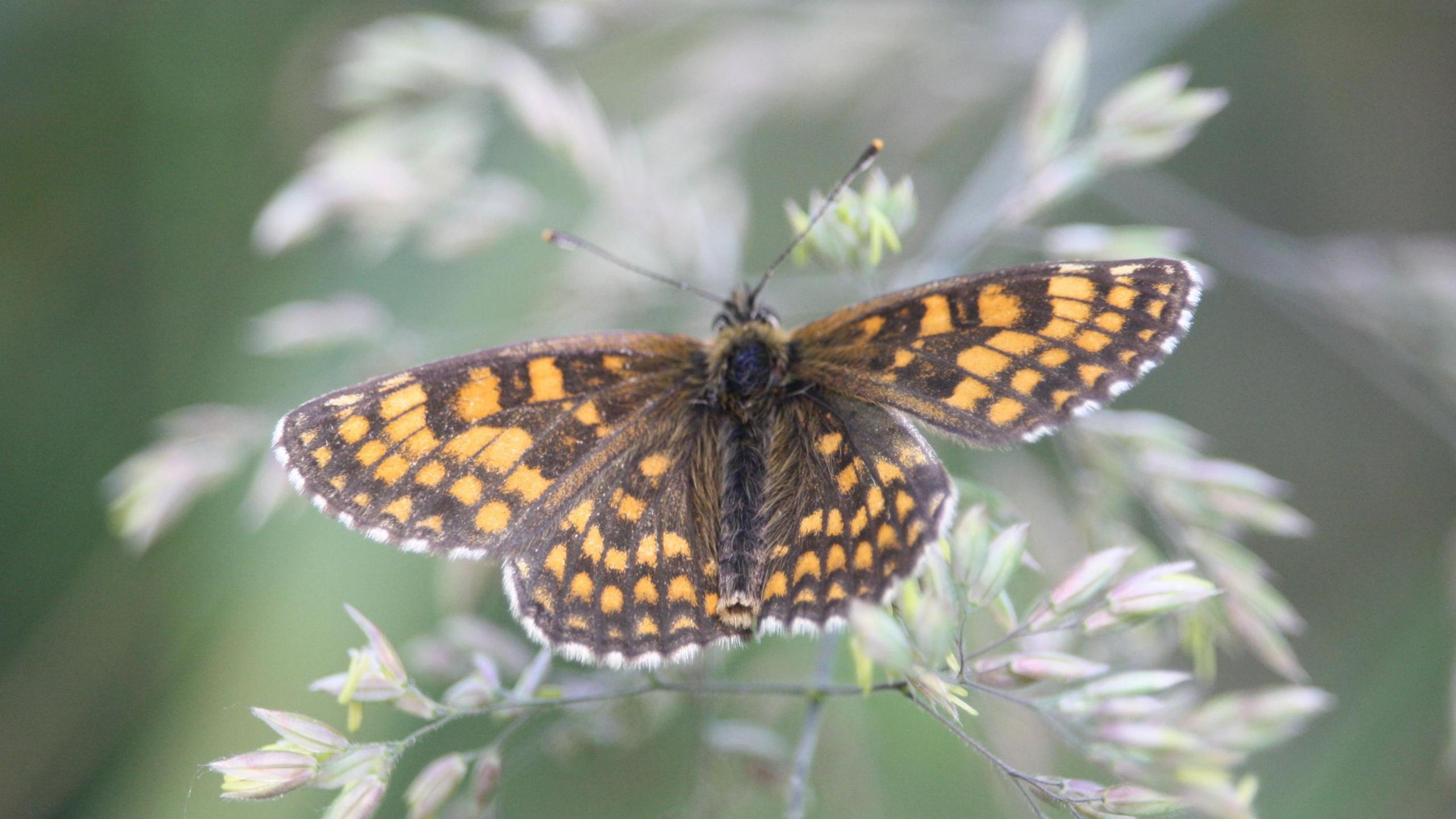
Record numbers of heath fritillary butterflies have been counted at an Essex nature reserve, a wildlife trust says
- Published
Record numbers of a butterfly once close to extinction have been recorded at a nature reserve, a wildlife trust has said.
The Essex Wildlife Trust said 218 heath fritillary butterflies had been counted at Pound Wood Nature Reserve near Hadleigh, Essex, this year.
Staff said the previous record at the reserve, which is especially managed to encourage the butterfly's recovery, was 148 in 2019.
Reports showed that 80% of the UK’s butterfly species had declined in the past 50 years, the trust said.
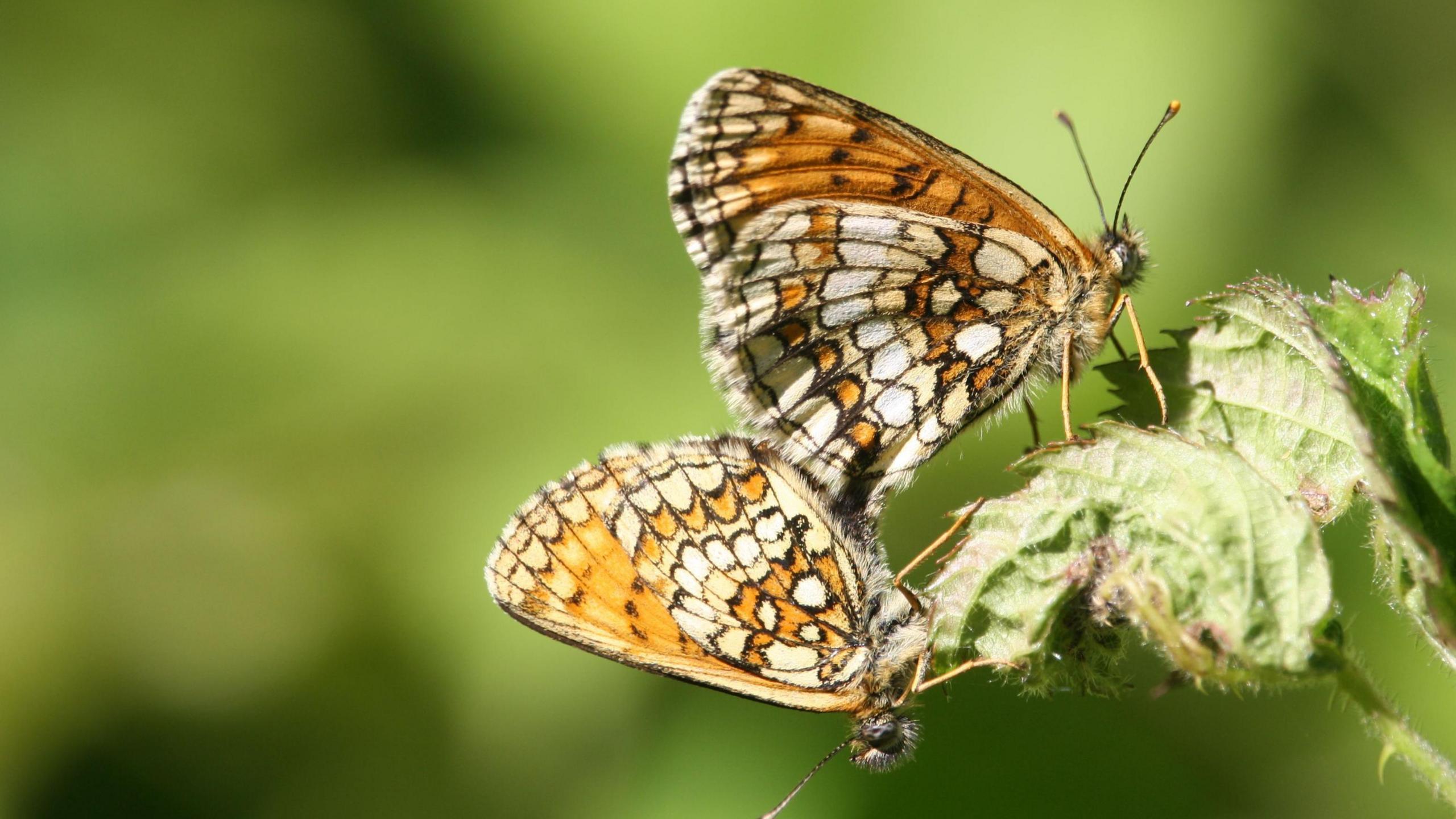
Heath fritillaries are only found in specialised habitats, a wildlife trust says
"The heath fritillary butterfly was once close to extinction in the UK, but thanks to conservation efforts, numbers are on the rise," said a trust spokeswoman.
"This year, 218 were recorded at Pound Wood Nature Reserve in south Essex, making it the highest number the trust has seen to date."
The spokeswoman said: "Previously, record numbers of 148 heath fritillary butterflies were announced in 2019."
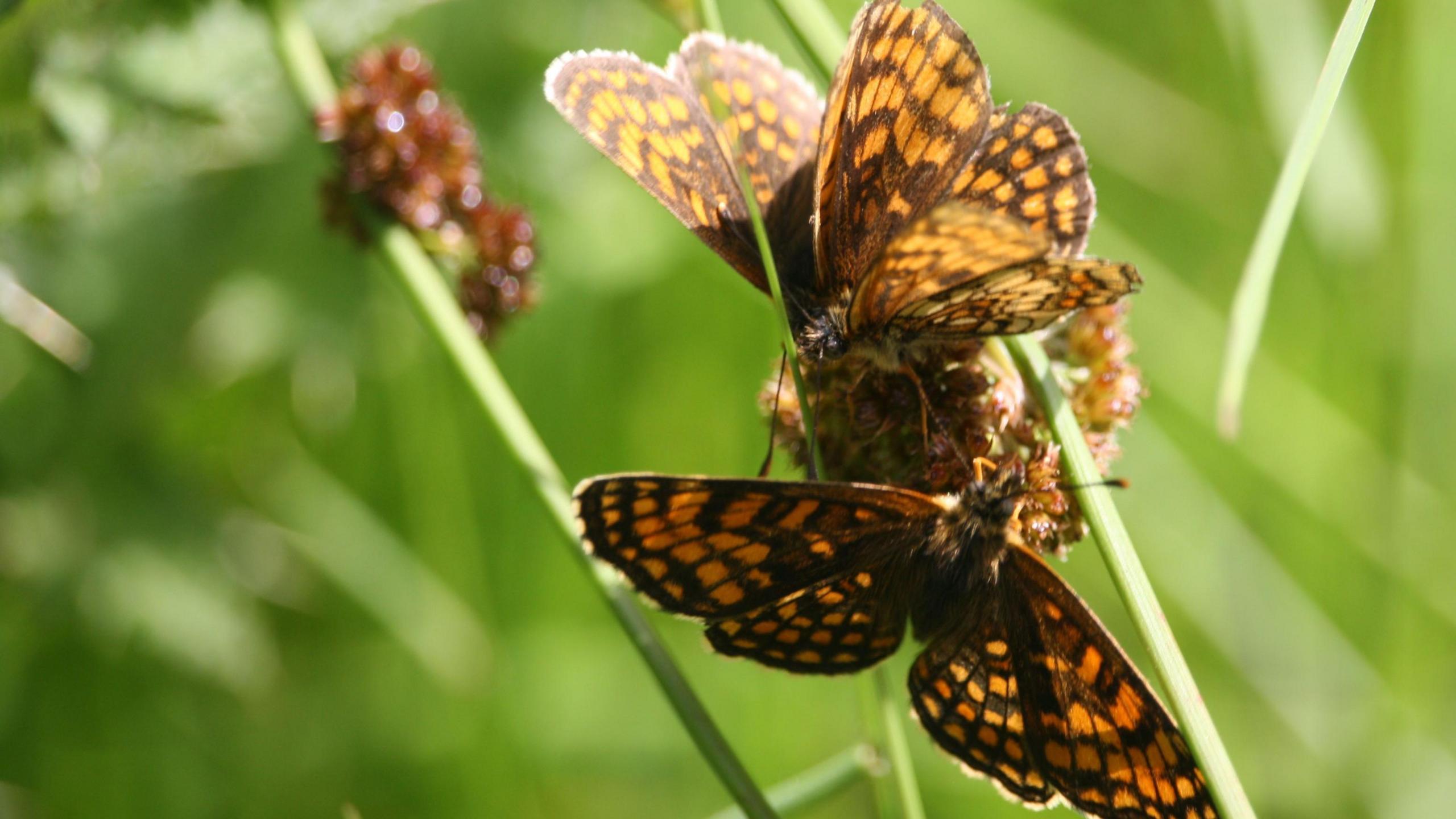
The heath fritillary butterfly was once close to extinction in the UK
Heath fritillaries were only found in specialised habitats, she said.
She said they were only found from May to July and preferred sunny, warm and sheltered environments.
"Colonies of this delicate butterfly occupy sheltered and coppiced woodland in the south-east of England where their larval food plant, common cow-wheat is present," she said.
"The trust, alongside dedicated volunteers, have been carefully managing ancient woodland to maintain this specialised habitat for over a decade."
She added: "Despite this success story, reports show that 80% of the UK’s butterfly species have declined in abundance and/or distribution in the last 50 years."
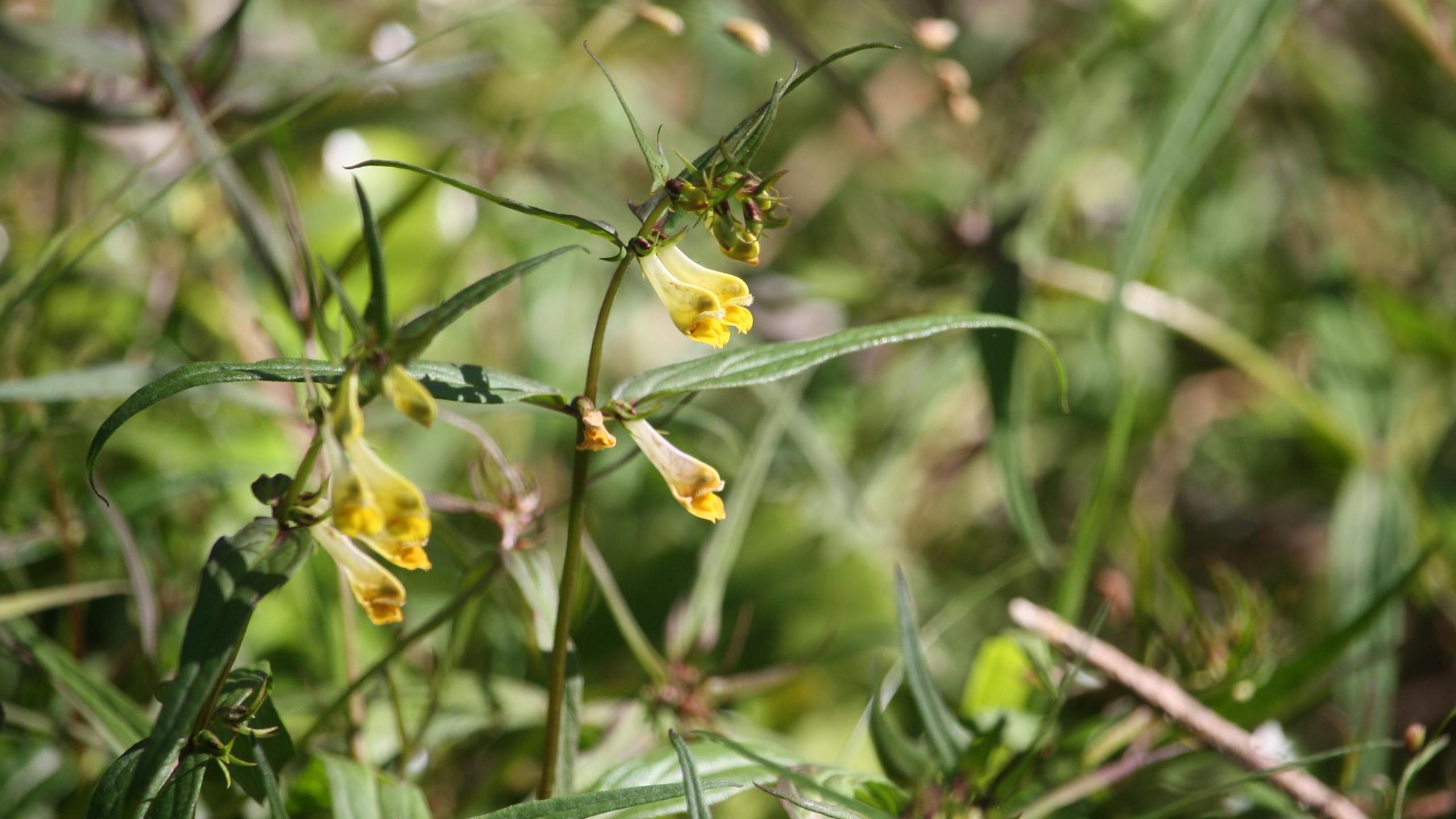
The heath fritillary butterfly's "larval food plant" is common cow-wheat
What do we know about heath fritillary butterflies?
The rare heath fritillary was on the brink of extinction in the 1970s, but conservation action turned its fortunes around
It is still confined to a small number of sites in the south of England
The butterfly is restricted to a "few key habitats" - mainly coppiced woodland or sheltered heathland
It can be seen flying close to the ground in a "distinctive flutter-and-glide pattern"
The heath fritillary lives in a small number of sites in Somerset, Devon, Cornwall and Kent, and has been reintroduced in Essex
It rarely strays from its main breeding grounds
The heath fritillary is variable in colour and the wing pattern, but it mostly displays a dusky, orange-and-brown chequered pattern
It is protected in the UK under the 1981 Wildlife and Countryside Act
Source: Essex Wildlife Trust Guide
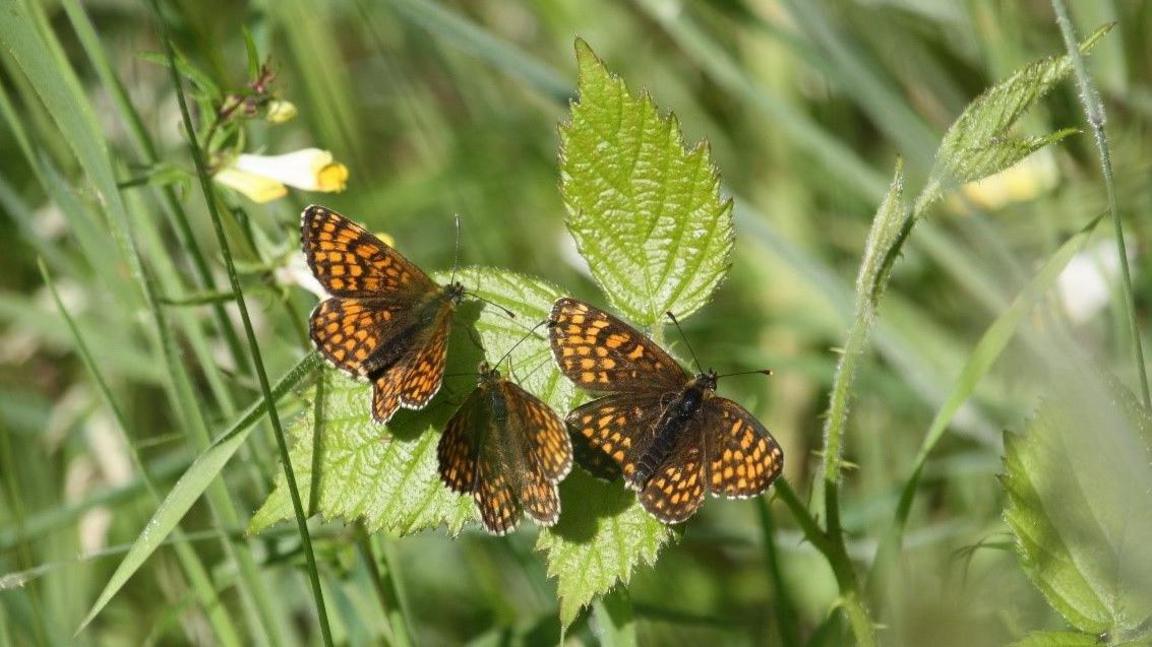
More than 200 heath fritillary butterflies have been counted at Pound Wood Nature Reserve this year
The Essex Wildlife Trust said it had launched "Butterfly Seekers" in 2023, a "citizen science" campaign which records butterflies in Essex.
"Between March and September, the public are asked to record any butterfly they see in Essex on an app," added the spokeswoman.
"These records will be used to inform conservation efforts for butterflies in Essex, with the aim of recovering more species, alongside the heath fritillaries."
Rare butterfly is flourishing in Essex
- Attribution
Follow Essex news on Facebook, external, Instagram, external and X, external. Got a story? Email eastofenglandnews@bbc.co.uk, external or WhatsApp us on 0800 169 1830
Related topics
- Published7 February 2024
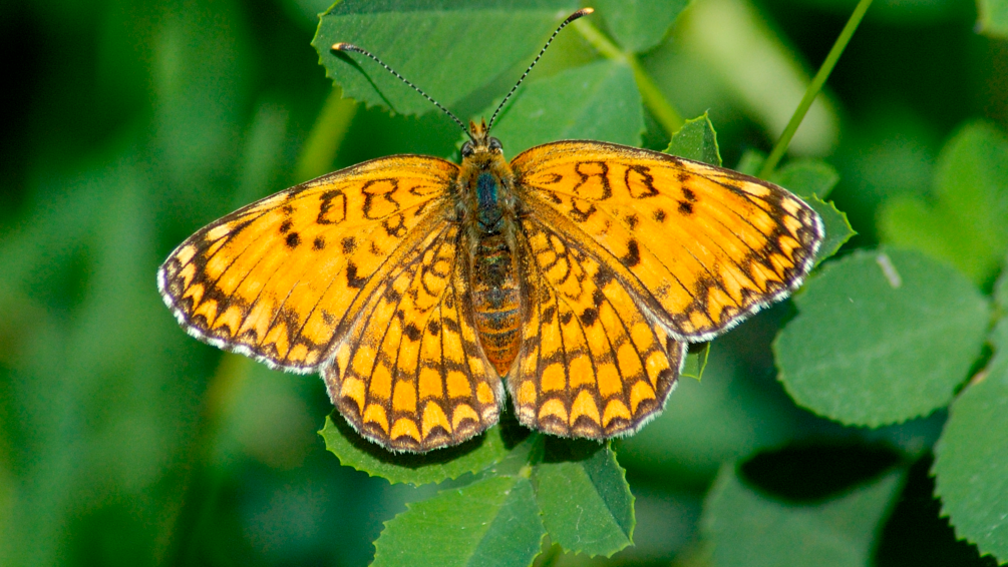
- Published3 July 2021
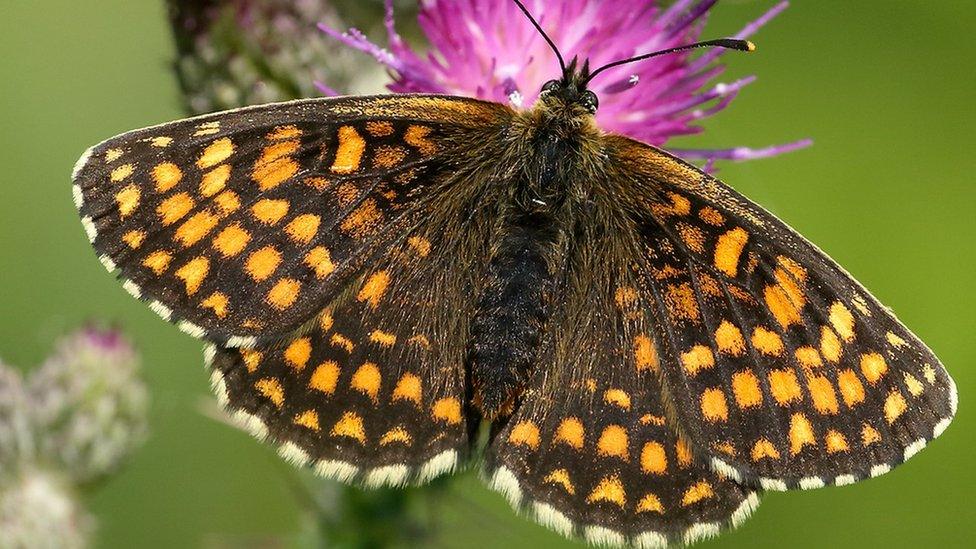
- Published16 June 2024
